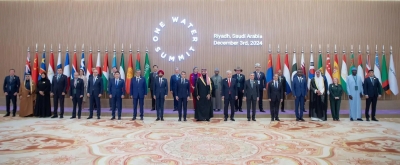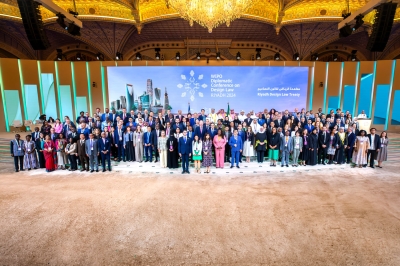
Unemployment in the Kingdom of Saudi Arabia is one of the challenges that the Saudi government has made progress in combating through multiple initiatives aimed at job localization and workforce replacement in various sectors. Saudi Arabia began its efforts to address unemployment in 1975 by implementing Saudization. This focus was particularly emphasized in the five-year development plans, as the unemployment rate among Saudis began to rise.
With the launch of Saudi Vision 2030, the country aimed to further increase employment rates, targeting a reduction in the unemployment rate to 7 percent or below. Saudi Arabia focuses on creating job opportunities for Saudi youth, promoting women's participation in the workforce, and supporting employers in the private and non-profit sectors to create sustainable employment opportunities. It also emphasizes the development of essential skills for the workforce to meet the demands of the labor market.
As a result of economic legislation supporting the Saudi labor market and the efforts led by the Ministry of Human Resources and Social Development, Saudi Arabia achieved the goal of Saudi Vision 2030 for unemployment rate for Saudi nationals at 7 percent before its time by the end of 2024.
Saudi Arabia's efforts to combat unemployment
Saudi Arabia has prioritized human resource development as a cornerstone for comprehensive development through its Eighth Development Plan. This plan aimed to increase the overall participation rate of the national workforce, continuously improve their skills, and provide rewarding job opportunities, especially in the private sector.
The Ninth Development Plan, through its strategic orientations aimed at achieving balanced development across the provinces of Saudi Arabia, focused on continuously improving citizens' standard of living, enhancing their quality of life, and reducing unemployment rates. It also prioritized developing the productive and creative capacities of citizens, providing them with rewarding job opportunities, and expanding their participation in various economic activities.
Agency for localizing jobs in the private sector
As part of enhancing laws to reduce unemployment and localize jobs, in 2018, the Council of Ministers issued a decision to establish an agency within the Ministry of Human Resources and Social Development. This agency is responsible for overseeing the employment of Saudis in the private sector, taking over the roles and responsibilities of the now-dissolved Job Creation and Unemployment Control Authority.
The Localization Agency within the Ministry of Human Resources and Social Development in Saudi Arabia focuses on developing Saudization programs for industries and economic sectors that are attractive to Saudi nationals. It aims to increase their participation in the labor market in line with their qualifications and the competitive advantages of each sector or region. This contributes to creating valuable job opportunities for citizens.
The agency operates systematically to offer job opportunities through a number of tasks, such as overseeing the study of activities targeted for localization, researching and addressing the challenges of job creation in government and private sector projects, and proposing plans and policies related to Saudi employment and job localization in the private sector. It also supervises the design, development, and implementation of localization programs across various sectors and regions.
Saudi Vision 2030 programs to combat unemployment
Saudi Vision 2030 realization programs have accelerated efforts to further enhance the capabilities of national human resources and create job opportunities through various projects. These initiatives aim to reduce the unemployment rate from 11.6 percent in 2017 to 7 percent by 2030.
Saudi Arabia has allocated legislative measures aimed at employing women and reducing unemployment within this demographic. Several decisions have been made regarding women's employment, with Decision No. 120, issued in 2004, being a cornerstone. It mandates that work in women’s supplies stores be restricted to women, providing a legislative and legal foundation for Saudi women's participation in the workforce. The activation of this decision has contributed to enabling Saudi women to play an active role in the nation's development process.
Initiatives to combat unemployment in Saudi Arabia
The Ministry of Human Resources and Social Development has continued to regulate the labor market and increase job opportunities for citizens, with a focus on Saudization efforts in various professions. This includes the ministerial decision issued in 2020 to localize engineering professions in establishments at a rate of 20 percent.
Additionally, the ministry extended Saudization to other professions that Saudis can fill, issuing a ministerial decision in 2020 to localize accounting professions in the private sector where five or more accounting professionals are employed, targeting a localization rate of 30 percent, creating over 9,800 job opportunities.
Further Saudization efforts targeted additional professions in 2022, with the Ministry of Human Resources and Social Development announcing eleven new localization decisions before the end of that year. These decisions included the localization of professions such as project management, procurement, and those in the food and drug sector. These localization decisions of sectors, activities, and professions contributed to an increase in the number of Saudis employed in the private sector to more than 2.13 million male and female citizens and reduced the unemployment rate among Saudis to 9.7 percent. Additionally, they led to a rise in the economic participation rate of women to 35.6 percent.
Unemployment data in Saudi Arabia
The Labor Market Bulletin for the first quarter of 2024, issued by the General Authority for Statistics in Saudi Arabia, highlighted positive trends in employment figures, unemployment rates among Saudi nationals, and economic participation levels for both the general population and Saudis. The results reflect the ongoing expansion of Saudi Arabia's labor market, driven by efforts to recruit national talent and achieve the economic transformation goals of Saudi Vision 2030 by supporting the participation of Saudi citizens in the workforce.
The overall unemployment rate for the population remained steady at 3.5 percent in the first quarter of 2024. A historic low for Saudi unemployment was recorded, with the rate dropping to 7.6 percent, a decrease of 0.2 percentage points from 7.8 percent in the fourth quarter of 2023. Moreover, the number of Saudi employees in the private sector reached a new record of 2,363,194 Saudi men and women.
The bulletin also indicated an increase in the overall labor force participation rate for Saudis in the first quarter of 2024, which stood at 51.4 percent, up from 50.4 percent in the previous quarter. The participation rate for Saudi women rose to 35.8 percent, compared to 35.0 percent in the fourth quarter of 2023. Similarly, the participation rate for Saudi men increased to 66.4 percent from 65.4 percent in the fourth quarter of 2023.
Additionally, around 1.1 million Saudi men and women benefited from the programs offered by the Human Resources Development Fund (HRDF), aimed at supporting the training, employment, and empowerment of national talent. The HRDF's support expenses for enabling Saudis exceeded SAR2.13 billion in the first quarter of 2024.
Rise in Saudi citizens' confidence in their economy
The decline in unemployment rates and the availability of jobs have contributed to the increase in confidence among Saudi citizens in their economy. For four consecutive months, from April to July 2022, Saudi citizens maintained the highest confidence in their country's economic direction, according to a global survey conducted by Ipsos. Saudi Arabia ranked first out of twenty-seven countries, with a confidence rate reaching 93 percent, surpassing the global average (32 percent) by sixty-one points.
These results bolstered Saudi Arabia's economic policies, leading Saudi Arabia to advance in the Edelman Trust Barometer for two consecutive years. In 2021, Saudi Arabia topped the index, which covers twenty-eight countries worldwide, with trust in the government's performance rising from 78 percent in January 2020 to 82 percent in January 2021, adding four percentage points and making it the most trusted government in the world according to the index.
Related quizzes
Related articles

